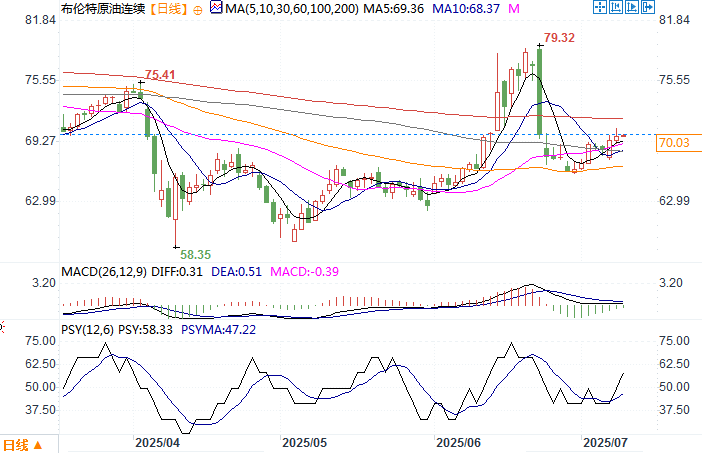Oil majors brace for price shock
2025-07-09 15:17:16
Back in May, Morgan Stanley forecast earnings declines for the largest international oil companies later this year and in 2026, threatening the pace of buybacks as a massive glut in the oil market weighs on prices.

The bank is not the only one predicting that the global oil market will take a breather under the weight of no oil demand, so far, almost everyone has predicted this. However, something interesting happened this week that may make some forecasters reconsider. OPEC+ said it will increase production by more than 500,000 barrels per day next month, and oil prices rose.
Now, ExxonMobil has warned that it will suffer a $1.5 billion financial hit due to lower oil prices in the second quarter. Bloomberg News on Monday quoted the company as saying that most of the impact will come from lower oil prices during the reporting period, with natural gas prices accounting for about $500 million. However, the latest developments in the oil market suggest that this has not turned into a chronic condition.
“Supply conditions are clearly improving, but demand is also stronger than expected,” Dennis Kissler, senior vice president of trading at BOK Financial, said this week. The reason demand is stronger than expected is that almost all forecasters believe that oil demand is in a downward spiral due to electric vehicles, and it is only a matter of time before that downward spiral reaches its natural end.
Instead, as the Energy Institute (EI) reported in its latest Statistical Review of World Energy earlier this year, oil demand has remained impressively resilient . Not only that, but with the deal signed and the US president thinking twice about punitive tariffs, the pessimistic expectations of global economic doom and gloom brought on by Trump’s unusual approach to trade policy are beginning to fade. The world economy seems to be surviving after all.
All of these recent developments suggest that Big Oil's second-quarter financial troubles were temporary problems caused by weak prices, which tend to occur regularly given the cyclical nature of commodity markets. The record profits of 2022 may not be repeated soon, or ever, but these are exceptions, no matter how much some analysts like to portray them as normal business. The same was true of the pandemic just two years ago, which taught Big Oil a valuable lesson.
“Our organization has planned for this,” Exxon’s Darren Woods said earlier this year. “We have stress-tested our plans and financial results under scenarios far more severe than the pandemic.” He said the company was prepared for the downturn by cutting nearly $13 billion in costs over five years.
Despite Wood’s claim that no other company has implemented cost cuts in this way, Exxon is not the only one. All the oil majors remember the pandemic, the demand drop caused by the lockdown, and the financial disaster that resulted, but they all survived and continued to make up for it two years later when the Russo-Ukrainian war broke out. So these warnings from Exxon and Shell (and perhaps others) are likely to be business as usual, with some good quarters and some not so good. As long as there is demand for oil and gas, the oil majors (and not just the oil majors) will adapt and survive.

Brent crude oil continuous source: Yihuitong
At 15:16 Beijing time on July 9, Brent crude oil continued to be quoted at US$70.09 per barrel
- Risk Warning and Disclaimer
- The market involves risk, and trading may not be suitable for all investors. This article is for reference only and does not constitute personal investment advice, nor does it take into account certain users’ specific investment objectives, financial situation, or other needs. Any investment decisions made based on this information are at your own risk.










